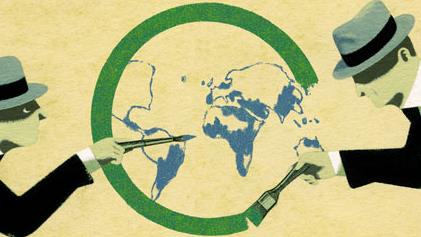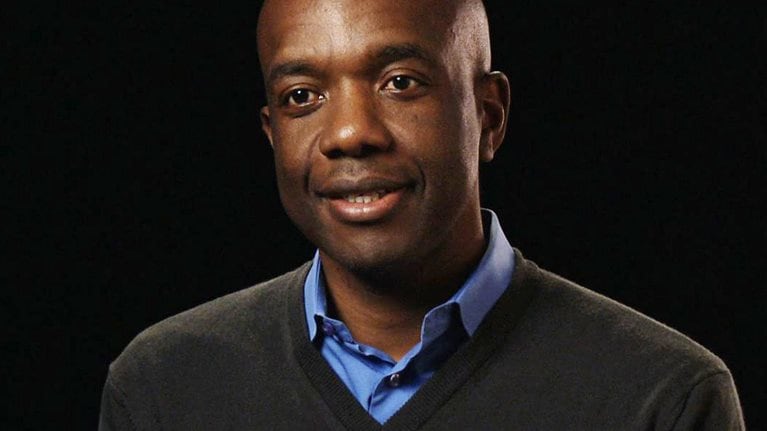The topic of business wasn’t on the table at the Bretton Woods Conference 70 years ago, when world leaders convened to determine how the international monetary and financial system would operate in the wake of World War II. In this video interview with McKinsey’s Rik Kirkland, author and consultant Don Tapscott explains why today is different—and why business must play a central role in solving global problems. An edited transcript of Tapscott’s remarks follows.
Interview transcript
A new model for solving global problems
There’s a fundamental change that’s underway in the way that we solve problems, cooperate, and govern ourselves on this little planet. And for 70 years, actually 70 years, dating back to 1944 in Bretton Woods, the model has been that states cooperate together through diplomacy, state-based institutions, or through some kind of direct action to solve problems.
And if you look at the world today, many of the problems that we have are not only stalled, they’re getting worse. So are they just too hard to solve, or is our model wrong? Well, enter a whole bunch of new factors: one of them is technology, and that’s radically dropping transaction and collaboration costs. In the private sector, it’s leading to deep changes in the architecture and structure of the firm and of how we orchestrate capability to innovate, to create goods and services, and so on.
In the public sector, it’s changing the way that we get capability to create public value. Why wouldn’t that affect the way that we get capability to solve the problems in the world? Why couldn’t we disaggregate that process and start to bring together new partnerships, new multistakeholder networks?
A second thing that’s happening is we’ve got the rise of the new “pillars of society,” in addition to government. There were no corporations at Bretton Woods in 1944, because they weren’t viewed as being pillars of society. Companies were just these things that made money for shareholders and created goods and services.
There were also no NGOs1 at Bretton Woods, because there weren’t any. There were 50 NGOs in the world in 1944. Now we’ve got these new forces, and they’re coming together into something that’s very, very powerful. They’re multistakeholder networks, I call them global solution networks. They’re engaging tens of thousands of organizations—companies, governments, civil society—and tens of millions of people on a daily basis.
And they’re becoming material in the world. They’re attacking every problem that we have. And they’re creating wonderful new opportunities to address some of the big challenges facing the global community.
The role of companies as citizens
The existing institutions are being challenged by this new model, and the smart ones are embracing it. So the UN is starting to figure this out. There are a lot of people who say the UN is no longer fit for function and we should get rid of it and so on. I disagree with that. States will be around for the foreseeable future, and we need them to cooperate together. And the UN is a key vehicle for that to occur.
But the UN is beginning to embrace the multistakeholder model. And the big climate-change conference that’s coming up in September is going to be a true multistakeholder initiative with strong representation from government, civil society, and the private sector.
This brings about some really big changes for business and how we think about business in the world. Corporations can now contribute in ways that were previously not possible. In the past, what did you do? You tried maybe to be a good company, although lots didn’t. But increasingly, you’ve got to get good because of transparency—you’re going to get naked, and you’ve got to be buff. And then companies also gave money through philanthropy and so on.
But now companies can be equal partners with governments and the civil society in bringing about change in the world, and this of course is critical to business because business can’t succeed in a world that’s failing. We need to have global prosperity. We need to have economic development. We need to solve the problem of jobs. Youth unemployment is an epidemic in the world today.
Because of the growing power of the digital revolution, companies have growing power, and they need to step up and be full participants in society, which is why it’s so important that they understand the rise of these new multistakeholder networks—global solution networks—and participate in them.
Tackling climate change through technology
If we can govern something like the Internet globally, through an ecosystem, through a global solution network, what else could we govern? Let’s look at the issue of the climate. Trying to govern that by traditional states has not worked out so well.
So why don’t we build a governance network—similar to the network that governs the Internet—for climate? Bringing together business, civil society, government, and individuals in a powerful new network that can attack this issue, that can get real commitments from all of the different stakeholders, and that can mobilize and galvanize the world. Because that’s what we need.
What we need is the world to be mobilized. That hasn’t happened for a long time, since the Second World War. The world was mobilized; we were on different sides. Now we can be mobilized to be on the right side to attack this problem. That’s what it’s going to take.
Webcast
Globalization Goes Digital: Why It Matters for Countries, Companies, and Citizens
A recent report on global flows from the McKinsey Global Institute, Global flows in a digital age: How trade, finance, people, and data connect the world economy, was the subject of an event at the New America Foundation featuring speakers including MGI director James Manyika and MGI partner Susan Lund, Google chairman Eric Schmidt, Allianz chief economic advisor Mohamed El-Erian, economist Matthew Slaughter, and Siemens US president and CEO Eric Spiegel. To view a full replay of the webcast, visit the New America Foundation website.


